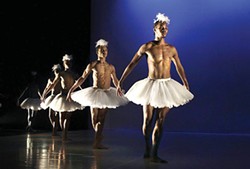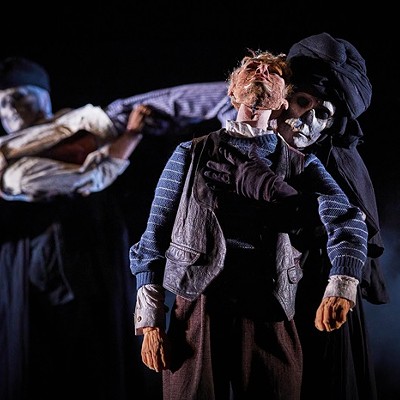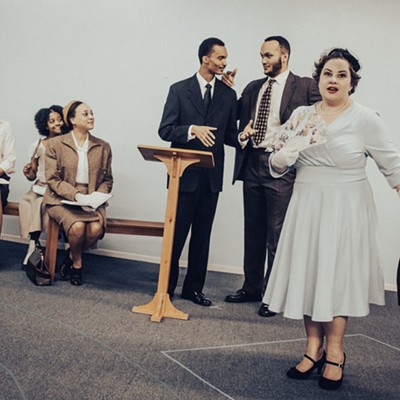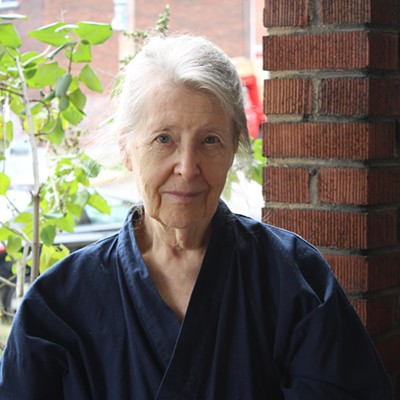Just like theater classics, ballet classics often receive contemporary redos. Top choreographers including Mats Ek, Jean Christoph Maillot and Matthew Bourne have all created alternate versions of such ballets as Giselle, Romeo & Juliet and The Sleeping Beauty using contemporary choreography and themes. Now, young South African choreographer Dada Masilo offers her version of Swan Lake.
Like Bourne’s groundbreaking 1995 Swan Lake, featuring an all-male cast of swans, Masilo gives new life to the 139-year-old ballet in the form of an African-inspired production that touches on issues of sex, gender, homophobia and the scourge of AIDS. Her company, Dada Masilo/Dance Factory Johannesburg, performs the Pittsburgh premiere of the hour-long Swan Lake on Jan. 30, at the Byham Theater. The show is presented by the Pittsburgh Dance Council.
“My version of Swan Lake is a fusion of classical ballet, contemporary and African dance styles,” Masilo writes via email from Montreal, where the company was performing.
Masilo’s movement language for the ballet also references South African popular culture, creating an unconventional, one-of-kind look that redefines beauty in motion. The production is set to an eclectic soundscape including excerpts from Tchaikovsky’s original score, African rhythms, and music by Steve Reich and Arvo Pärt. Masilo’s storyline for the ballet also deviates from the original: Prince Siegfried falls not for the beautiful white swan, Odette (danced by Masilo), but for a male black swan in the Odile role. The pairing brings sorrow to Siegfried’s parents and eventually a tragic end to the Prince and Odile.
London’s The Guardian praised both the ballet’s “fresh and fast-paced style” and Masilo’s “wit and seriousness in handling the original ballet’s themes.”
Masilo says her ballet draws from personal experience with friends and loved ones affected by AIDS. “At the end of Swan Lake there is a trio between Siegfried, Odette and Odile,” says Masilo. “The trio started off as a solo I created to Camille Saint-Saëns’ ‘Dying Swan.’ I made it a requiem for my aunt who died of AIDS. My aunt was sick, yes, but what ultimately killed her was the stigma associated with the disease. She died of a broken heart. I wanted to create something visceral, vulnerable, broken and full of grief. That is what the end of Swan Lake is for me.”















